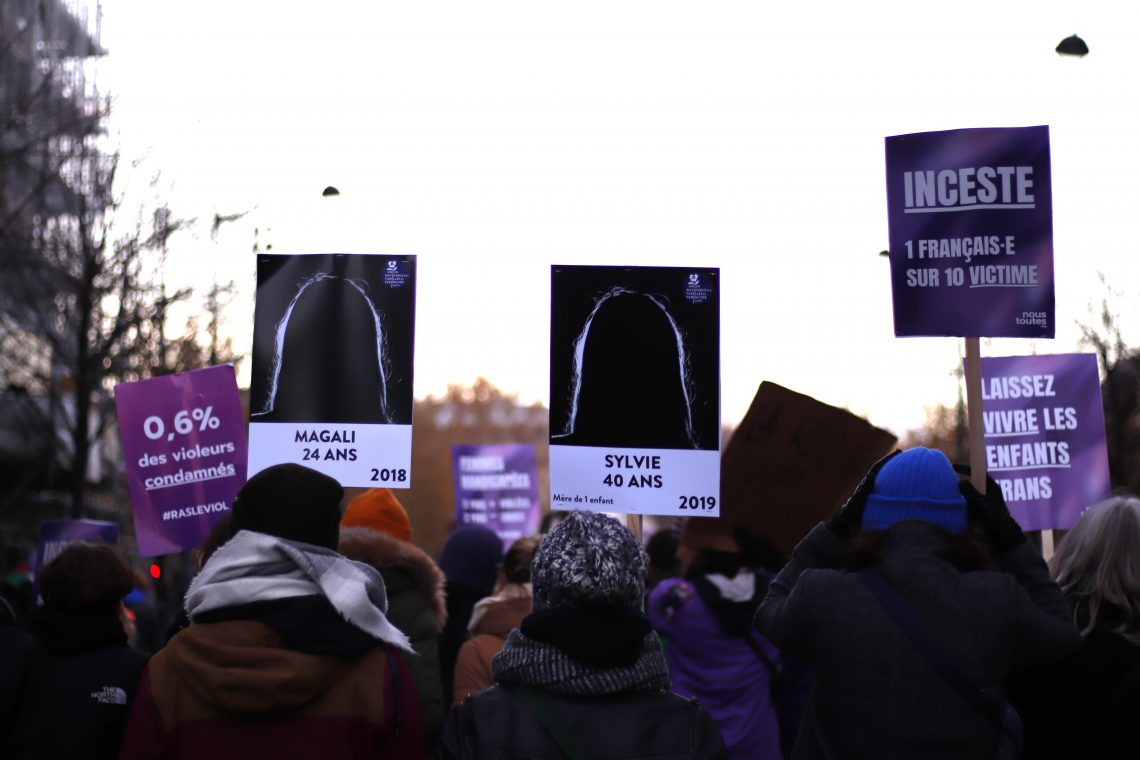
Solidarity in Action: Parisians Rally Against Sexist and Sexual Violence
For this year’s International Day for the Elimination of Violence against Women, which falls on the 25th of November, protests were held in Paris and other big cities across France to raise awareness of, and advocate against, acts of gender-based violence.
Within the first couple of weeks since moving to Paris, I found myself engaged in a deep conversation with my fellow exchange students about the delights of having moved to the city. However, our conversation took a gradual turn into an intense exchange of how unsafe we felt in Paris as young women, a sentiment that echoed our previous experiences at home in UK cities London and Manchester, and in other European cities like Budapest and Barcelona.
Sadly, we concluded how the pervasive fear of sexist and sexual violence seemed inescapable, underscoring the unsettling reality that the system we live in often falls short in preventing such acts.
Therefore this Saturday, the 25th November, myself, along with 80 000 others, including SciencesPo’s own NousToutes society, took to the streets of Paris to protest against this lack of action against sexist and sexual violence, and to ensure no one feels alone in this battle. This date in November has been dedicated to the emancipation of women since the General Assembly adopted resolution 54/134 in 1999, which acknowledged how ‘endemic violence against women was impeding women’s opportunities to achieve legal, social, political and economic equality in society.’.
The forms of gender-based violence are various, ranging from rape, sexual and physical assault, and forced marriage, to denial of resources and psychological and emotional abuse. In France alone, it is estimated that at least 44 % of women have experienced some form of this violence. And just under Macron’s presidency, more than 850 feminicides have been recorded.
An inter-associative protest, a range of groups and charities gathered at Place de la Nation on the day. They included the main organiser NousToutes, a collective at the forefront of championing change in light of these alarming statistics, Amnesty International and Les Rosies, a feminist collective that raises awareness by dancing to classic songs with lyrics rewritten to expose the realities of gender inequality.
The protest also drew both pro-Palestinian and pro-Israeli activists. Some protesters, waving Palestinian flags and posters reading “Free Palestine,” marched in a show of solidarity with Gaza and Palestinian women who are being murdered. However feminist groups holding signs which called for a recognition of the gender-based violence against Israeli women by Hamas on the 7th October, were asked to leave the protest to prevent a conflict from abrupting with the pro-Palestinians.
Speaking to one protester about why they decided to participate in the march, they replied, “I’m here because I believe it’s time to break the silence. Too many women suffer in silence, and it’s crucial that we stand together to demand change.” While another, when asked about what message they believe needs to be received by policymakers, declared that “an acknowledgment of the severity of the issue is needed,” and that “concrete action and comprehensive measures must be implemented.”
For SciencesPo students, this protest comes at a particularly relevant time, occurring just weeks after individuals barricaded the entrance to the Paris campus. They demanded that the institution take more decisive actions to condemn aggressors and prevent future incidents of sexual violence, highlighting a pressing need for change.
A swarm of people adorned in purple, a unifying colour which refuses to be ignored, made their way up Boulevard Voltaire, holding placards up towards the sky which exhibited empowering phrases such as; “It’s a dress, not a yes” and “mon, corps; mon choix, mes droits”.
Despite the chill in the brisk November air, a tangible warmth radiated from the pervasive feeling of unity and solidarity. I befriended women donned in knitted cagoules, after curiously observing them darting around plastering buildings with posters, and spray-painting benches with the moving words “tu n’est pas seule” (you are not alone).
The unity of the diverse crowd was palpable, as protestors navigated the streets with a shared purpose, demanding change and amplifying the call for gender justice in the heart of the French capital. The protest was indeed yet another visual testament of the continual struggle to dismantle the structures that perpetuate violence against women.
Crédits photo : Clémentine Gigot

